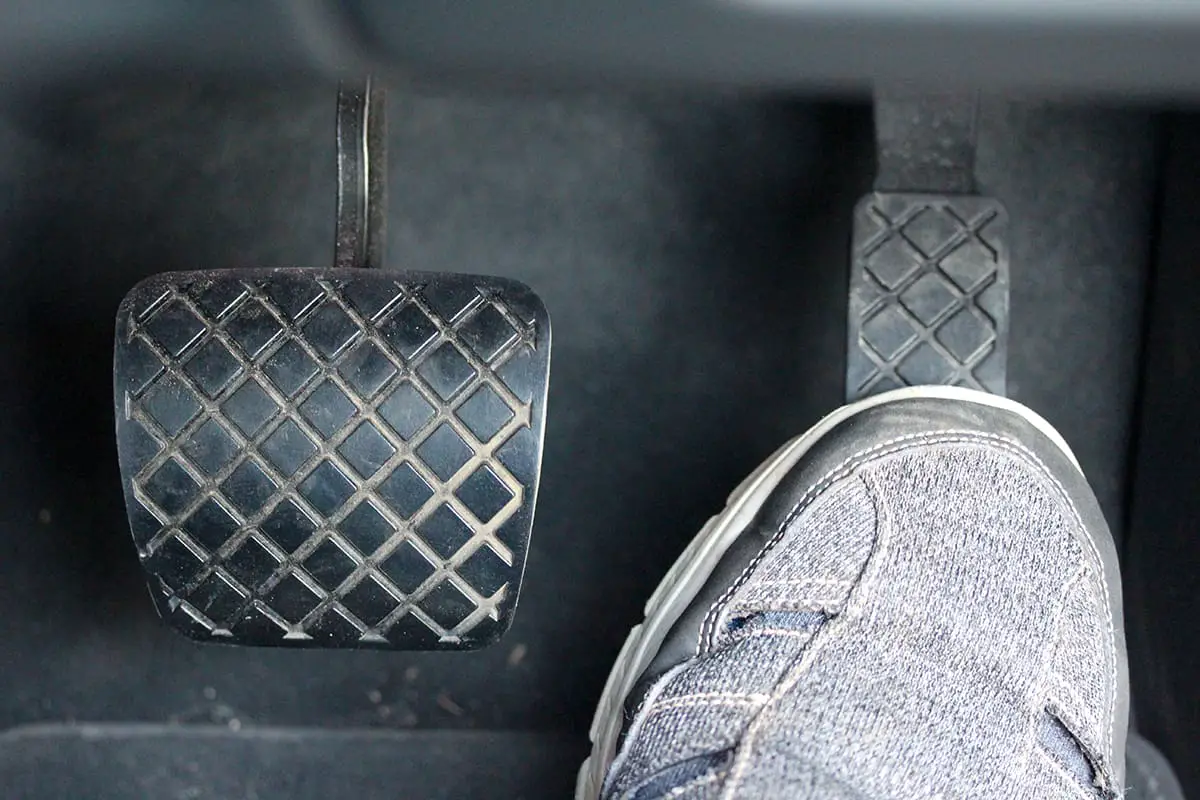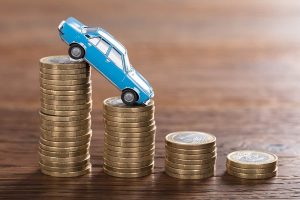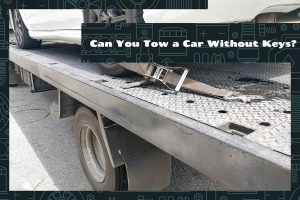So, you’re hearing some weird clicking noises when you press the gas pedal? That’s definitely not normal! When something doesn’t sound right, your first reaction may be to stress out, and when it comes to a clicking gas pedal, that reaction is warranted!
If you’re experiencing a clicking gas pedal, it could be due to a few different reasons:
- Car mat blocking
- Loose or cracked spark plug
- A buildup of dirt or debris inside the throttle body
- Faulty fuel injectors
- Worn motor mount, control arm, or axle
- The loose heat shield or worn muffler
- CV joint issues
In this guide, we’re going to take a closer look at each of these causes and how you can fix them. I’ll also discuss a few ways you can prevent a clicking gas pedal from occurring in the future.
What Causes the Clicking Noise?
Have you ever heard a clicking sound when you press down on the gas pedal of your car? Don’t worry, it’s actually pretty common and can happen for a number of reasons. In this section, we’ll go over some of the most likely causes of this noise so you can get a better understanding of what’s going on.
1. Car mat blocking
Sometimes, the problem is right under your nose or, rather, your feet. Take a look at the car mat in the driver’s footwell and check the position of the mat. If it’s too thick or if it moves around, then it might be the culprit behind the pesky clicking noises you hear every time you hit the gas pedal.
2. Loose or cracked spark plug
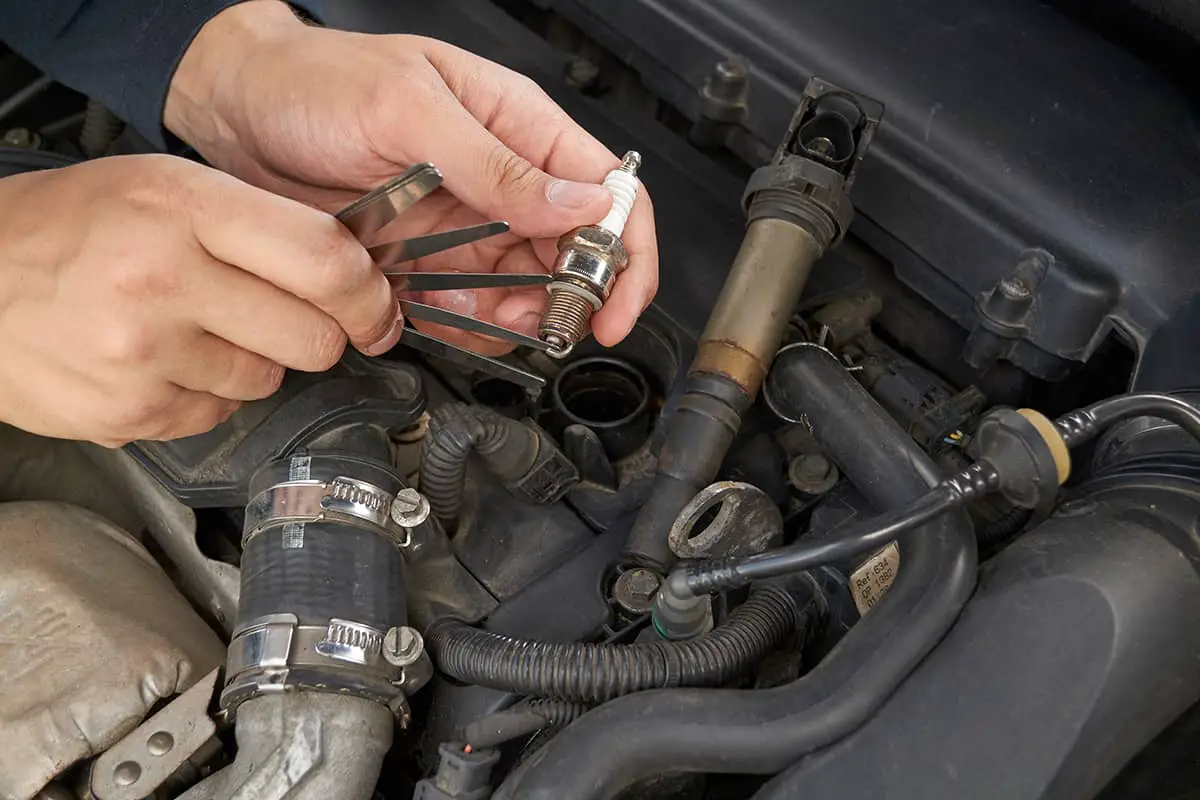
Another somewhat simple cause is a loose or bad spark plug. If the spark plug is less than fit for wear, it’s doing a poor job of igniting the fuel in the engine, possibly leading to engine misfires and the dreaded clicking noises you hear.
3. Buildup of dirt or debris inside the throttle body
If your car’s throttle body has a lot of dirt or debris buildup, it can stop the throttle plate from moving smoothly, which might cause a clicking noise when you hit the gas pedal. The throttle body is responsible for controlling the airflow that goes into the engine, so if it’s dirty or clogged, it can cause other problems with your car’s performance too.
4. Faulty fuel injectors
If the fuel injectors in your car aren’t working correctly, they might not be sending fuel to the engine like they should, which can lead to a clicking sound when you step on the gas pedal. In addition, this issue could also cause your car’s performance and fuel efficiency to drop.
5. Worn motor mount, control arm, or axle
All of these parts are responsible for keeping the engine and wheels stable. If there’s a problem with any of them, then you may notice vibrations and clicking noises every time you slam the gas pedal.
6. Loose heat shield or worn muffler
This happens because the exhaust system isn’t properly secured and can vibrate against the car’s frame. You might also notice some rattling sounds along with the clicking noise.
7. CV joint issues
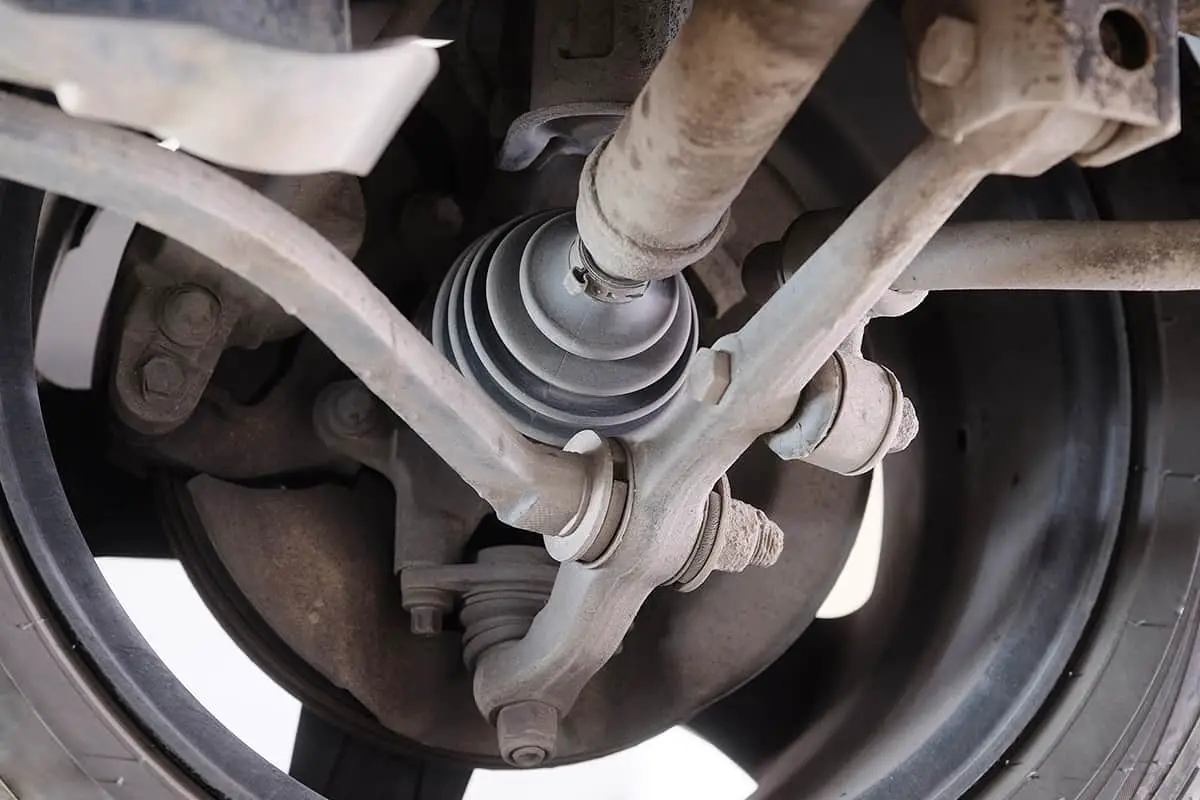
CV (constant velocity) joints are in charge of transferring power from the transmission to the wheels and allow them to turn at different angles. If the CV joint is faulty or damaged, you might also feel some vibrations and notice uneven tire wear and hear clicking noises every time you step on the gas pedal.
How to Fix the Clicking Noise
If you’re experiencing a clicking noise when you step on the gas pedal of your car, it’s important to get it checked out and fixed as soon as possible. Here are some common fixes for this issue
1. Move the car mat or replace it entirely
If your car mat is causing the clicking noise, the first thing you should do is try adjusting its position or replacing it altogether. Start by checking to see if the mat is too thick or too big for your car’s footwell. If so, consider purchasing a mat that is specifically designed for your car’s make and model. If the mat is simply misplaced, move it so that it is not interfering with the pedals.
2. Replace the spark plug
Replacing the spark plug is a relatively simple process that can be done with basic tools. Start by identifying the location of the spark plug, remove the old one with a spark plug socket and ratchet, and replace it with a new one. If you’re unsure of how to do this, you can always take your car to a professional mechanic who can replace the spark plug for you.
3. Clean the throttle body
What you need to do is remove the air intake duct and inspect the throttle body for debris or dirt. Use a soft-bristled brush to scrub out any debris in the body’s walls carefully, the butterfly valve, and the throttle plate. You may need to use a throttle body to get rid of caked-on debris. Now, reinstall the components and check to see whether the clicking noises have gone away.
4. Repair the fuel injectors
If the clicking noise is caused by faulty fuel injectors, it’s important to have them inspected and replaced if necessary. Fuel injectors are responsible for delivering fuel to the engine, and if they are not working properly, it can cause a decrease in your car’s performance and fuel efficiency.
5. Check the motor mount, control arm, or axle
Over time, these parts can wear out, which can lead to vibrations and clicking noises. It’s important that you take your car to a professional mechanic to diagnose the issue and replace any components if necessary.
6. Fasten the heat shield or replace the muffler
A professional mechanic can help! They’ll lift up your car and take a good look at the heat shield and muffler to see if there’s any damage or wear and tear. If they find anything, they’ll secure the heat shield with some handy-dandy brackets and even replace the muffler if necessary.
7. Check the CV joints
CV joints are in charge of transferring power from the transmission to the wheels while also allowing them to turn at various angles. If necessary, a professional mechanic can replace the CV joint with a new one.
How to Prevent the Clicking Noise
You can do a few things to avoid that annoying clicking sound when you press the gas pedal.
First and foremost, ensure that your car mat is securely fastened and does not interfere with the pedals. If you’re using a mat that’s too thick or doesn’t fit the make and model of your car, you should consider getting one that’s specifically designed for it.
You can also keep up with routine maintenance, like changing your oil and air filter. This can help keep fuel injectors, spark plugs, and other engine components in good working order. Remember to have your vehicle’s suspension and steering components checked on a regular basis to ensure that everything is in working order.
Finally, avoid rough terrain and potholes as much as possible. These things can damage your car’s components and cause clicking noises later on. We hope these tips help you keep your car in good shape and prevent annoying noises!
